Related Research Articles

Ibn Sina, commonly known in the West as Avicenna, was a preeminent philosopher and physician of the Muslim world, flourishing during the Islamic Golden Age, serving in the courts of various Iranian rulers. He is often described as the father of early modern medicine. His philosophy was of the Peripatetic school derived from Aristotelianism.

Alain de Lille was a French theologian and poet. He was born in Lille some time before 1128. His exact date of death remains unclear as well, with most research pointing toward it being between 14 April 1202 and 5 April 1203. He is known for writing a number of works based upon the teachings of the liberal arts, with one of his most renowned poems, De planctu Naturae, focusing on sexual conduct among humans. Although Alain was widely known during his lifetime, little is known about his personal life.

Roger Bacon, also known by the scholastic accolade Doctor Mirabilis, was a polymath, a medieval English philosopher, scientist, theologian and Franciscan friar who placed considerable emphasis on the study of nature through empiricism. Intertwining his Catholic faith with scientific thinking, Roger Bacon is considered one of the greatest polymaths of the medieval period.
Year 1130 (MCXXX) was a common year starting on Wednesday of the Julian calendar.
Year 1235 (MCCXXXV) was a common year starting on Monday of the Julian calendar.

Year 1260 (MCCLX) was a leap year starting on Thursday of the Julian calendar.
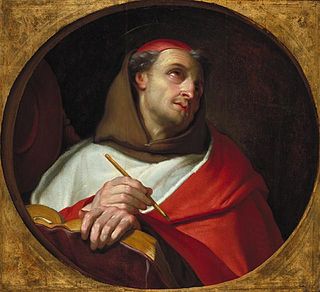
Bonaventure was an Italian Catholic Franciscan bishop, cardinal, scholastic theologian and philosopher.

Jean Buridan was an influential 14th‑century French philosopher.

Abu Nasr Muhammad al-Farabi, known in the Latin West as Alpharabius, was an early Islamic philosopher and music theorist. He has been designated as "Father of Islamic Neoplatonism", and the "Founder of Islamic Political Philosophy".
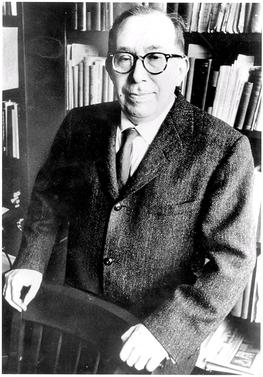
Leo Strauss was an American scholar of political philosophy. Born in Germany to Jewish parents, Strauss later emigrated from Germany to the United States. He spent much of his career as a professor of political science at the University of Chicago, where he taught several generations of students and published fifteen books.

Pierre Maurice Marie Duhem was a French theoretical physicist who worked on thermodynamics, hydrodynamics, and the theory of elasticity. Duhem was also a historian of science, noted for his work on the European Middle Ages, which is regarded as having created the field of the history of medieval science. As a philosopher of science, he is remembered principally for his views on the indeterminacy of experimental criteria.
Philosophy of sex is an aspect of applied philosophy involved with the study of sex and love. It includes both ethics of phenomena such as prostitution, rape, sexual harassment, sexual identity, the age of consent, homosexuality, and conceptual analysis of more universal questions such as "what is sex?" It also includes matters of sexuality and sexual identity and the ontological status of gender. Leading contemporary philosophers of sex include Alan Soble, Judith Butler, and Raja Halwani.
Roscelin of Compiègne, better known by his Latinized name Roscellinus Compendiensis or Rucelinus, was a French philosopher and theologian, often regarded as the founder of nominalism.
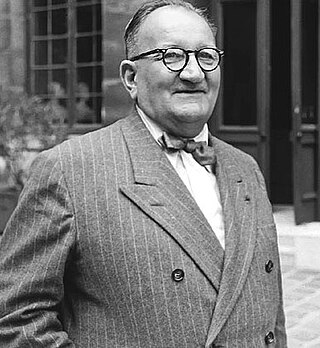
Étienne Henri Gilson was a French philosopher and historian of philosophy. A scholar of medieval philosophy, he originally specialised in the thought of Descartes; he also philosophized in the tradition of Thomas Aquinas, although he did not consider himself a neo-Thomist philosopher. In 1946 he attained the distinction of being elected an "Immortal" (member) of the Académie française. He was nominated for the Nobel Prize in Literature.
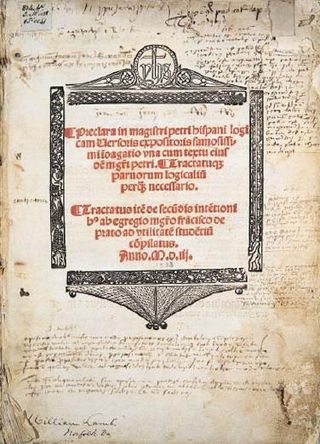
Peter of Hispania was the author of the Tractatus, later known as the Summulae Logicales, an important medieval university textbook on Aristotelian logic. As the Latin Hispania was considered to include the entire Iberian Peninsula, he is traditionally and usually identified with the medieval Portuguese scholar and ecclesiastic Peter Juliani, who was elected Pope John XXI in 1276. The identification is sometimes disputed, usually by Spanish authors, who claim the author of the Tractatus was a Castilian Blackfriar. He is also sometimes identified as Petrus Ferrandi Hispanus.
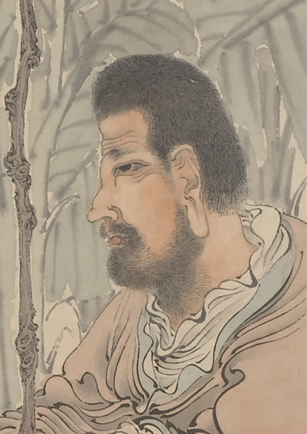
Zhi Dun was a Chinese Buddhist monk and philosopher. A Chinese author, scholar and confidant of Chinese government officials in 350, he claimed that all who followed Buddhism would, at the end of their life, enter Nirvana.

A History of Philosophy is a history of Western philosophy written by the English Jesuit priest Frederick Charles Copleston originally published in nine volumes between 1946 and 1975. As is noted by The Encyclopedia Britannica, the work became a "standard introductory philosophy text for thousands of university students, particularly in its U.S. paperback edition." Since 2003 it has been marketed as an eleven volume work with two previously published other works by Copleston being added to the series.
Remigius (Remi) of Auxerre was a Benedictine monk during the Carolingian period, a teacher of Latin grammar, and a prolific author of commentaries on classical Greek and Latin texts. He is also accredited with collecting and compiling other early medieval thinkers' commentaries on these works.
Jorge J. E. Gracia was a Cuban-born American philosopher who was the Samuel P. Capen Chair, SUNY Distinguished Professor in the Department of Philosophy and Department of Comparative Literature in the State University of New York at Buffalo. Gracia was educated in Cuba, the United States, Canada, and Spain, and received his Ph.D. in Medieval Philosophy from the University of Toronto.
James Simpson is an Australian-British-American medievalist who served as the Donald P. and Katherine B. Loker Professor of English at Harvard University until his retirement in 2022.
References
- ↑ Ueberweg, Friedrich (1872). History of Philosophy, from Thales to the Present Time, vol. 1. New York, NY: Charles Scribner & Co. p. 373.
- ↑ Poole, Reginald Lane (1960). Illustrations of the History of Medieval Thought and Learning (2 ed.). New York, NY: Dover. pp. 92–93.
- ↑ The Catholic Encyclopedia, vol. 13. New York: Robert Appleton Company. 1912. p. 190.
- ↑ Erdmann, Johann Eduard (1890). History of Philosophy, vol. 1. Swan Sonnenschein. p. 314.